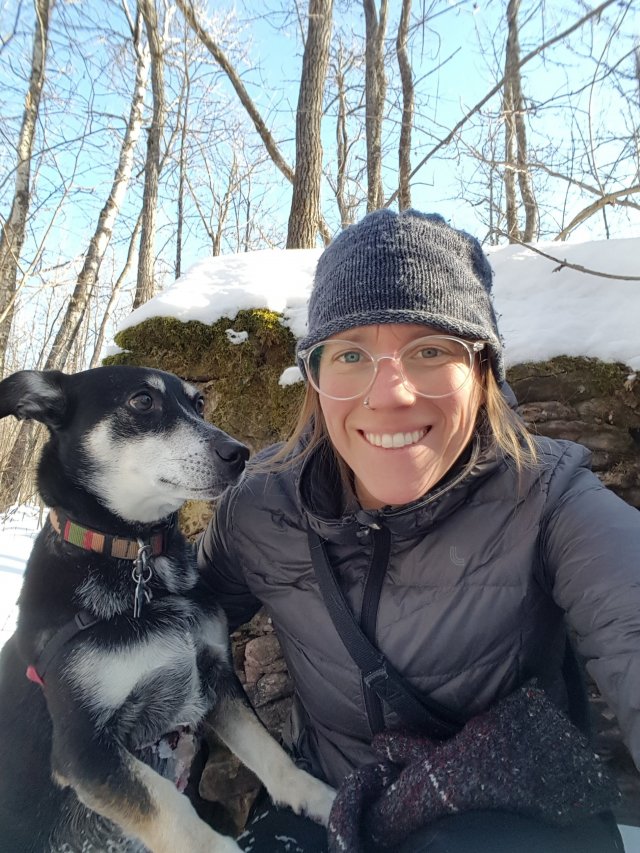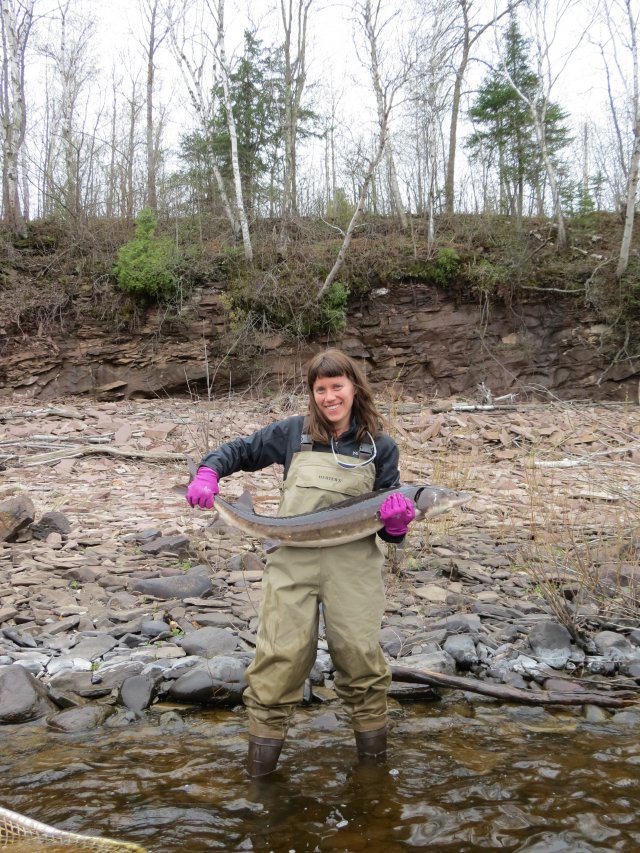Meet EPA Researcher Molly Wick

EPA researcher Molly Wick is a student trainee studying cultural ecosystem services associated with surface water resources in the Great Lakes.
What research are you working on right now?
My graduate research is an interdisciplinary study of the human well-being benefits of water resource management. I am using mixed quantitative and qualitative methods to study cultural ecosystem services, or the intangible benefits people experience from Great Lakes ecosystems. I am interested in understanding how experiences of cultural ecosystem services vary with intersectional demographic groups, and how cultural ecosystem service assessments can inform interventions that resource managers can take to improve the quality, quantity, and equity of cultural ecosystem services in a community.
In 2020, I was awarded a Margaret Davidson Fellowship through the Lake Superior National Estuarine Research Reserve to pursue my graduate research. I’m partly funded through that and through a student training agreement through EPA Great Lakes Toxicology and Ecology Division Laboratory.
Tell us about your background.
I have an undergraduate degree in Geology from University of Minnesota. I then pursued a Master of Science in Earth and Planetary Science at the University of New Mexico, where I studied how meteorites formed in the early solar system. After that, I decided I wanted to return to Earth and contribute to something more relevant to people, so I did a second master’s degree in Water Resource Science at the University of Minnesota Duluth. After that, I managed habitat restoration projects in the St. Louis River Area of Concern for the Wisconsin Department of Natural Resources for a few years. Then I did a fellowship with the Great Lakes Toxicology and Ecology Division focusing on assessing ecological conditions of the Great Lakes. The wonderful scientists and friends I worked with inspired me to pursue my PhD.
When did you first know you wanted to be a scientist?
I grew up surrounded by water in Two Rivers, Wisconsin, on the shore of Lake Michigan, and water has always made me happy. I took an ecology course in high school that I loved. We took a few field trips to streams in the area and I loved learning about all everything growing in the stream and getting to be outside. The excitement of discovery combined with the peacefulness of being out in nature attracted me to environmental science.
What do you like most about your research?
I love reading and writing. I love constantly learning and being challenged to think about things differently than I have been. I love the variety and the non-stop challenges that I have in my job. I love trying to bridge the worlds of natural science and social science. And I really love the people I work with.
How does your science matter?
Through my experiences working in natural resource management and ecosystem assessment, I came to realize how important our values are in decision-making. Because of those experiences, I came to believe that a better understanding of the entire social-ecological system is vital to managing the environment for tangible benefits to the community. I think this understanding is especially important for advancing environmental justice and increasing the equality of ecosystem services across communities.

If you weren’t a scientist, what would you be doing?
Part of what I love about research is writing. It helps me make sense of everything. If I weren’t a scientist, I would probably just be writing something else… stories, memories, maybe even science.
What advice would you give a student interested in a career in science?
My advice would be to take the time to explore many different avenues and find something that is a good fit for your personality and passions. There are so many possibilities and sometimes it takes a lot of exploring. My career path was anything but straight, but it has led me to really find something I’m excited about every day.
What’s your role in the Pickle Pond research project?
I am supporting the Pickle Pond research by creating outreach materials and helping with data collection.
What do you think the coolest scientific discovery was and why?
I think one of the coolest discoveries is the age of the earth. Like looking at a night sky, trying to fathom 4.6 billion years of time on this planet really puts our human lives in perspective.
If you could have dinner with any scientist, past or present, who would you choose and what would you talk about?
I’d like to talk to Rachel Carson. She was revolutionary and had such a huge impact on the world. I’d talk to her about what it was like to be a woman scientist at that time with a message that went so far against the norms of the time.
You are stranded on a desert island; how do you use science to survive?
I’d definitely use my cell phone to call for help.
What do you think is our biggest scientific challenge in the next 20/50/100 years?
The biggest challenges for our generation and the coming generations are to address climate change and environmental injustices. It will take all hands-on deck.
Editor's Note: The opinions expressed herein are those of the researcher alone. EPA does not endorse the opinions or positions expressed.
